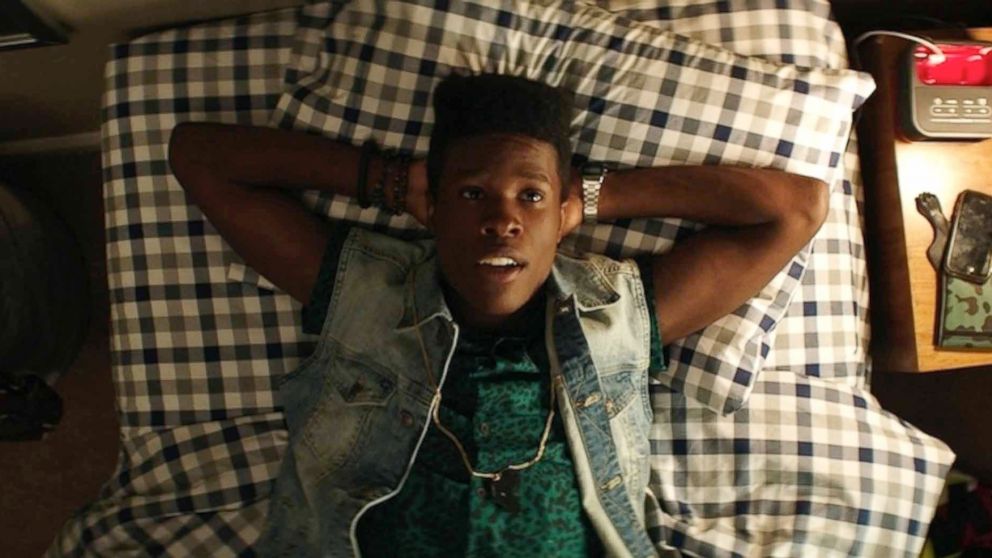Movie Review: 'Dope' Reveals Itself to be Part Spike Lee, Part John Hughes
Get all the details of the new film.

— -- Starring Forest Whitaker, Shameik Moore, Tony Revolori and Kiersey Clemons
Rated R
Four out of five stars
Shameik Moore is Malcolm in "Dope," and as the narrator (Forest Whitaker) explains, Malcolm lives in Inglewood, California, in the rough Darby-Dixon neighborhood, referred to as “The Bottoms.” He’s also obsessed with '90s hip-hop culture. When we meet him, he’s got a Kid ‘n Play haircut and is listening to Naughty by Nature’s “Hip Hop Hooray,” on cassette, in a Walkman.
Malcolm’s not only passionate about '90s hip-hop, he also has a punk band with his two best friends, Jib (Tony Revolori) and Diggy (Kiersey Clemons), the latter a lesbian most people confuse for a boy. As if all that didn’t make Malcolm different enough, he’s also a genius and wants to attend Harvard.
Malcolm’s Ivy league dreams are jeopardized when he accidentally acquires a large amount of Molly foisted on him by a drug dealer named Dom (rapper A$AP Rocky), which is the event that largely propels the movie forward. Making things more interesting is Zoe Kravitz as Nakia, Dom’s on again/off again girlfriend, who here is the spitting image of her mother, actress Lisa Bonet (I’m guessing that was intentional). Let’s just say Nakia will inspire some confidence in our young hero.
"Dope" isn’t exactly "The Breakfast Club," "Risky Business" or "Do the Right Thing," and yet in many ways it is. It’s as if writer/director Rick Famuyiwa appropriated plotlines and moments from those movies the way Will, a white character in Dope, appropriates black culture and Malcolm, Jib and Diggy appropriate white punk and hip-hop culture.
And yet, it’s not an appropriation at all. Rather, Famuyiwa was influenced by those films and as a result, has produced something that borders on terrific. It’s very much like Malcolm, who writes his Harvard entrance essay on Ice Cube, then defies his guidance counselor’s advice to choose a more conventional topic: “I could write about the typical, ‘I’m from a poor, crime-filled neighborhood, don’t know my dad, blah, blah, blah. It’s cliché.”
Malcolm is an amalgam of many things, and so is Dope, although neither is a cliché. Famuyiwa instead has used it all to craft a film that perfectly captures millennial zeitgeist. Many movies have tried to do it, playing to millennials by adopting a social media and gaming cultural aesthetic, and even using video game storytelling techniques. In "Dope," the millennial vibe is effortless. From bitcoins to Snapchat, everything we see the characters using and discussing arises organically, save for a few major frustrating coincidences that keep the movie from being perfect.
"Dope" was the comedy darling of the Sundance Film Festival, and it lives up to the hype. If you ever wanted to see an intelligent Spike Lee joint with a John Hughes sensibility, this is the movie for you.




